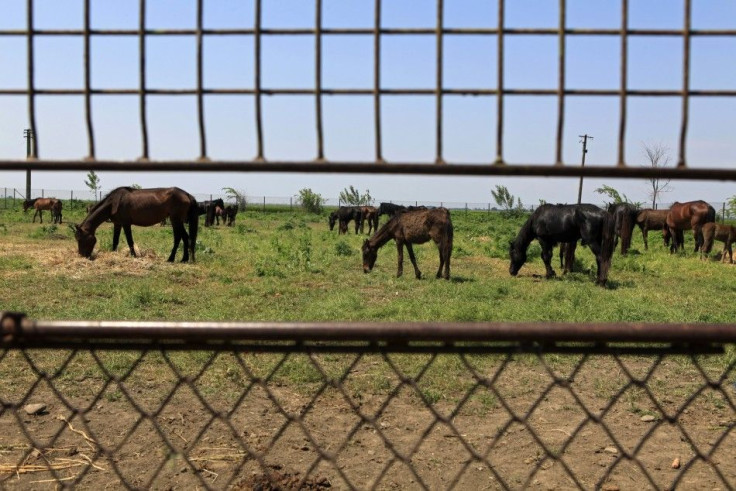Humane Society Opposes Horse Slaughter in U.S.

Horse slaughter is poised to come back to the U.S. within 30 to 90 days, now that Congress has effectively ended a ban. But while those in favor of horse slaughter in the U.S. argue the meat is healthy, and that the act has humane advantages, the Humane Society is against horse slaughter in the states.
And plants that may open for the purpose of horse slaughter, primarily to serve those who eat horse in Europe and Asia, considering the meat a delicacy, can expect to face a fight in the communities where they operate, says Wayne Pacelle, president and chief executive officer of The Humane Society of the United States. The organization is threatening protests and legal actions if necessary.
Local opposition (to plants) will emerge and you'll have tremendous controversy over slaughtering Trigger and Mr. Ed, Pacelle said.
The Humane Society has a firm position against horse slaughter. The organization argues that plants in the U.S. are not a better alternative to foreign-owned plants across the border, in Canada and Mexico where slaughter has been primarily conducted with many exported U.S. horses in the five years since a ban was effectively imposed before recently being lifted.
Undercover footage from inside these horse slaughter facilities in the U.S. demonstrated how horrific these plants were-many horses were conscious when they were shackled and hoisted by a rear leg to have their throats cut, said the Humane Society in a position statement in 2010. Slaughter is not euthanasia-it is a brutal and terrifying end for horses. We should not allow our horses to be subjected to this tremendous cruelty inside-or outside-of our borders.
The Humane Society also argues that the ban on horse slaughter did not lead to an increase in unwanted horses or abandonment, as some argue.
USDA statistics show that more than 92 percent of horses slaughtered are in good condition and able to live productive lives. In California, where horse slaughter was banned in 1998, there has been no corresponding rise in cruelty and neglect cases, while horse theft dropped by 34 percent after the ban.
The Humane Society says that most horses that go to slaughter are in good condition.
USDA documents that more than 92 percent of horses who go to slaughter are in good condition-they will not need to be euthanized. Some 900,000 horses die annually and are safely disposed of by means other than slaughter, and the infrastructure can easily absorb an increase in numbers, the Humane Society says.
© Copyright IBTimes 2024. All rights reserved.





















